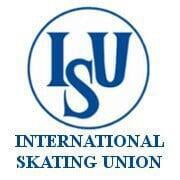The German court has just issued two decisions refusing to apply the judgments of the Court of Arbitration for Sport (CAS) (and thus by extension, the decisions of the International Federations) on the grounds that they were contrary to the law of the European Union . Discover this week the two judgments that can revolutionize arbitration in sport. Today, the case Pechstein c / International Skating Union before the Munich Court of Appeal (15.01.2015).
[part 2]
Reminder of the facts and procedure
1. Claudia Pechstein is a German multi-Olympic and World medalist skater.
2. In 2009, she became one of the first skaters to be sanctioned for doping following the establishment of the biological passport by the ISU. The Federation then suspends her from all competition for 2 years.
3. The skater appeals the decision to CAS in application of an arbitration clause included "in its license with national and international federations"(Sic).
4. The November 25 2009, the CAS rejects his request and confirm the suspension.
5. Pechstein then seized the Swiss Federal Court to challenge the judgment of the CAS. His requests are again rejected (Swiss Federal Court, January 10, 2010, 4A_612 / 2009 ; Swiss Federal Court, September 28, 2010, 4A_144 / 2010).
6. At the same time, the skater takes the European Court of Human Rights against Switzerland (who has not yet made a decision).
7. Following the decisions of the Swiss Federal Court, she brought an action for compensation for her damage before the Munich Court.
The Court delivers its judgment on February 26, 2014 and recognizes the nullity of the arbitration clause. Nonetheless, he believes that the attribution of CAS should be recognized because Pechstein did not challenge his jurisdiction when appealing the ISU's decision.
8. Also, Pechstein decides to appeal the judgment to the Munich Court of Appeal.
The Court of Appeal will grant the requests by a judgment January 15, 2015 (to this day alonethe press release of the Court of Appeal appeared. The text of the decision is not yet available).
An arbitration clause contrary to competition law
Court considers arbitration clause between ISU and Pechstein to be contrary to German competition law. The judges thus refuse to apply article V.2.b. of the 1958 New York Conventionand to recognize the validity of the CAS award in Germany.
The judges consider that the International Federations are in a monopoly situation. In other words, these Federations control the international sports competition market et no professional athlete can afford, if he wants to make a living from his sport, to miss his competitions.
However, German competition law prohibits a company in a dominant position from imposing contractual conditions which differ from what they would be in a normal competitive environment.
Consequently, the Court considers that the ISU illegally forced, without "legitimate" reason, the signature of an arbitration clause (through its license) on Claudia Pechstein.
In the present case, the Court particularly regrets the influence of the Federations in the appointment of CAS arbitrators. (3/5 are appointed by sports institutions). Since January 1, 2014, the ICAS (supervisory body of the CAS) can appoint the arbitrators it wishes. But for the Court, in the Pechstein case, sports institutions are in a favorable position regarding the composition of the arbitral tribunal. The same is true for the appointment of the President of the Tribunal, who is elected by a simple majority by a body "structurally dependent on national associations".
The judges deduce from this that the independence of the arbitral panel cannot be guaranteed and that the fairness of the arbitral process cannot be ensured. Indeed, the procedure does not meet the minimum standards required for a fair trial and the parties are not treated equally.
Therefore, in light of the monopoly position of the ISU and the lack of independence of the referees, imposing an arbitration clause depriving the athlete of his constitutional right to be judged on an equitable basis constitutes a violation of competition law. German.
Arbitration clauses and the lack of independence of arbitrators
If the decision were to be confirmed by the German Supreme Court, this would imply that the judgments of the CAS (except in particular modification of the rules for the appointment of referees) could no longer be enforceable in Germany and that the athletes would be liable to claim damages from the Sports institutions.
Pending the publication of the decision, it is unclear whether it is based solely on German competition law or also on EU law. Indeed, if this decision were also to be based on an abuse of a dominant position within the meaning of Article 102 of the TFEU, this would be liable to call into question the very existence of arbitration in sport within the European Union. EU.
Let us note that in the press release published, the Court nevertheless recognizes the usefulness of the CAS and wishes an institutional reform of the Court to remove the two points criticized which are the arbitration clauses and the lack of independence of the arbitrators.







